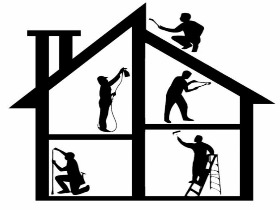 Amateur Landlord: The Way to Handle Tenant Repairs
Amateur Landlord: The Way to Handle Tenant Repairs
✉️ Want to forward this article? Click here.

Part of being a landlord is dealing with repairs. Appliances break, plumbing leaks, HVAC units will fail. It is just a matter of time before you receive your first tenant repair request.
If a repair needs to be made because of a code violation, the law will usually spell out how quickly that repair needs to happen. But knowing what to do when you inevitably receive a call about a common repair and taking the appropriate steps before a tenant moves in can help you arrive at a solution quickly and effectively.
“In order to mitigate misunderstandings, it behooves a landlord to have a very strong lease and perform a comprehensive walk-through in advance of occupation,” Rick Gersten, founder of UrbanIgloo.com, a residential rental brokerage firm, told UrbanTurf. Gersten suggests taking photos and documenting the condition of all appliances and elements of an apartment before leasing, and also doing a second walk-through with the tenant before they move in to reduce conflicts that could occur later on.
For typical maintenance repairs, landlords should ask their tenants to submit a written request. However in the case of emergency repairs like flooding, fire or break-in, landlords should obviously act immediately. “Landlords have a definite obligation to fix items that concern life and fire safety,” Gersten said.
Gersten also thinks it is a good idea for landlords to acquire an insurance policy that has umbrella coverage of the rental unit. Landlord insurance policies generally protect against bodily injury or property damage lawsuits and will reimburse any loss of rental income if a unit is rendered untenable.
Rodent infestations can be a particularly tricky issue for landlords because their presence is often a result of a tenant’s actions. “Landlords can do what they can to mitigate pests but it’s often the result of tenants leaving food our that encourages the problem,” Gersten said, adding that the best approach with pests is to proactively contract a company to maintain and regularly spray a unit.
Although it is the landlord’s responsibility to make most repairs, Gersten said that there are some maintenance costs that landlords can pass on to the tenant.
“If a landlord delivers a unit in good working order then they can hold their renters responsible for repairs that are outside of reasonable wear and tear.”
Gersten acknowledged that sometime the landlord’s definition of “reasonable wear and tear” and the tenant’s can vary. For this reason, he suggests that landlords define both tenant and landlord responsibilities in the original lease.
See other articles related to: amateur landlord
This article originally published at https://dc.urbanturf.com/articles/blog/amateur_landlord_the_way_to_handle_tenant_repairs/2440.
Most Popular... This Week • Last 30 Days • Ever

The mortgage interest deduction allows homeowners who itemize their taxes to reduce t... read »

A new mixed-use development would bring hundreds of new residential units and a healt... read »

Georgetown is one of the busiest neighborhoods for development in the city.... read »

Leading the way is the 20015 zip code where almost half of homeowners are considered ... read »

Capital Bikeshare's record rides; the surging $10 million housing market; and how a S... read »
DC Real Estate Guides
Short guides to navigating the DC-area real estate market
We've collected all our helpful guides for buying, selling and renting in and around Washington, DC in one place. Start browsing below!
First-Timer Primers
Intro guides for first-time home buyers
Unique Spaces
Awesome and unusual real estate from across the DC Metro













